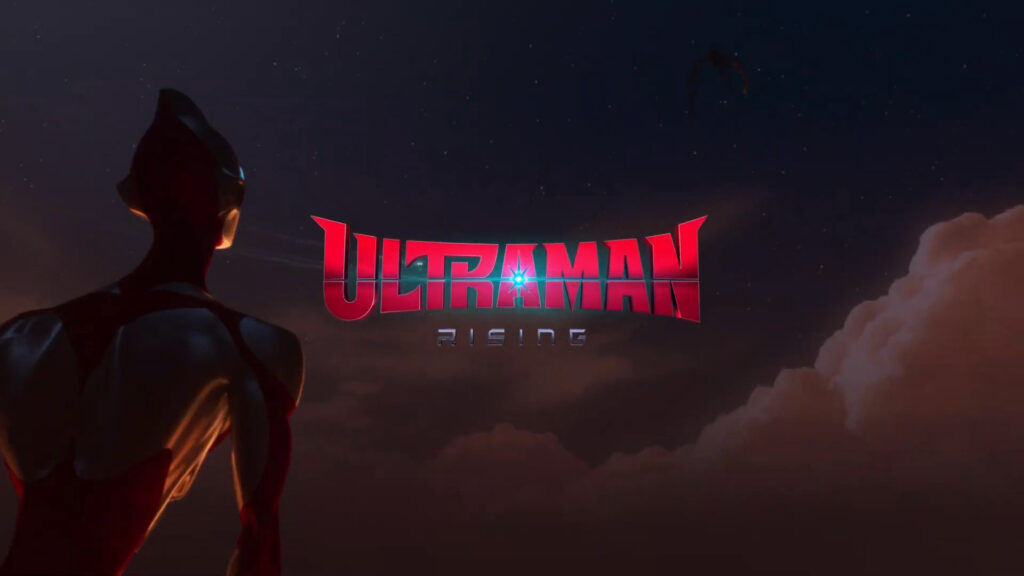Ultraman: Rising 2024 Movie Review
Ultraman has one job: to defend the world from kaiju. Across countless manga, video games and movies, Ultraman’s core duty has been to fend off ferocious land and sea monsters — which, of course, have always been allegories for other threats facing humankind. In “Ultraman: Rising,” our hero adopts one, which makes no sense in the greater scheme of Ultraman lore. (It would be like Batman going soft and raising a supervillain’s abandoned love child or Superman deciding to open a gift shop specializing in kryptonite.) But as with all metaphors, this one isn’t really about kaiju, but parent-child dynamics. And who doesn’t love a baby kaiju?
Not to rain on writer-director Shannon Tindle’s parade, but the baby kaiju thing feels like a cheat. DreamWorks and other CG animation studios have been exploiting this tactic for years, introducing adorable infant versions of otherwise not-especially-cute characters. The character designers give them big eyes and bobbleheads, and audiences invariably go “awww” and buy up all the toys.
If I understood “Ultraman: Rising” correctly (and the plot isn’t all that easy to follow for those unfamiliar with the nearly 60-year-old franchise), the dino hatchling known here as Emi is the spawn of Gigantron, a fire-breathing, gumball-pink dragon with a tiny bird-like head and a massive Godzilla-like body. By contrast, Emi is all cranium atop a petite torso and stumpy legs.
Before Ultraman finds her, he has a whole new backstory crammed into the film’s first half-hour. Remember Ultraman’s one job? According to an opening voiceover delivered by Ken Sato (Christopher Sean), fighting kaiju is nothing compared with being a good dad. One day when Ken was just a kid, his own father (Gedde Watanabe) — who just so happens to be Ultraman — disappeared entirely, prioritizing kaiju control over parenting. Twenty years later, Ken is now living in the U.S. and playing baseball for the Giants. Both his mom and dad are gone, and Ken’s got a kaiju-sized chip on his shoulder.
He’s also kind of a jerk, giving press conferences where he cockily calls himself “the greatest living player” in baseball (by day). At night — which looks great in the film’s sleek, semi-phosphorescent CG animation style, as handled by ILM — Ken morphs into a 40-meter-tall Ultraman, dashing off to do battle with all manner of fantastical beasts … which is what audiences want from an Ultraman movie. Ken relocates to Japan, where kaiju are more of a problem, and soon finds himself tête-à-tête with Gigantron, the same monster he blames for stealing his dad away.
As if that’s not enough backstory, there’s another enemy in the mix: Dr. Onda (Keone Young), head of the Kaiju Defense Force, a government-backed organization committed to wiping out kaiju altogether. Japanese movies go back and forth on whether kaiju are good or evil, and this one finds the vigilante Ultraman flip-flopping, while the KDF is determined to render them extinct by locating and destroying Kaiju Island. Once Ken adopts Emi, he has to not only juggle parenting and baseball, but also keep his hungry “little one” from letting loose and stomping through population centers.
All this mythology-bending plotting is presumably a lot more fun if you’re already invested in Ultraman. Otherwise, the movie offers more fleeting pleasures, as when Ken struggles to figure out how to placate and feed his baby kaiju, with the aid of a floating Siri-like droid named Mina (Tamlyn Tomita, who’s also the voice of Ken’s long-lost mom). It’s less clear why he doesn’t just smother or banish the creature, but I guess no one asks why Batman dresses as a big bat.
Both the character and the script seem schizophrenic about Ultraman’s identity, uncertain whether to cast him as humble guy or superhero — man or Übermensch, as Nietzsche might put it. There’s also a promising romantic subplot involving a single-mother television reporter named Ami (Julia Harriman), although the whole movie starts to feel overloaded at a certain point.
Remember, what audiences really want are super-scale dustups, and the movie delivers that, with the slightly evolved Emi taking Ultraman’s side against Mega Gigantron during the film’s spectacular finale. The idea is to bring father-child stakes into all this mayhem, which works to a degree. But in the movie’s desire to wring tears, parental figures die, disappear or otherwise sacrifice themselves for their kids, only to reappear later hale and hearty (as the “Rising” subtitle implies). The film winds up having it both ways once too often, to the extent that Ultraman’s fate and the movie’s message are ultimately unclear.




